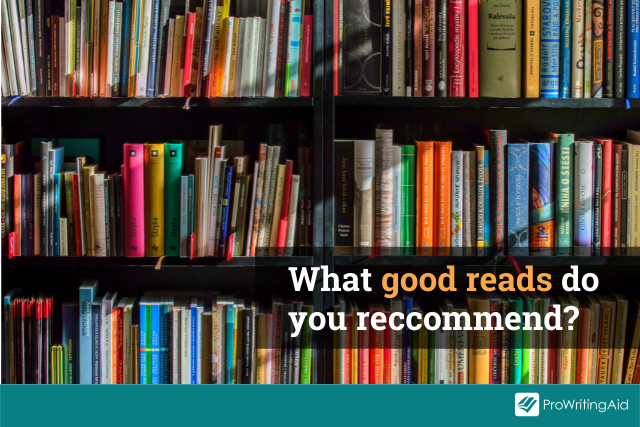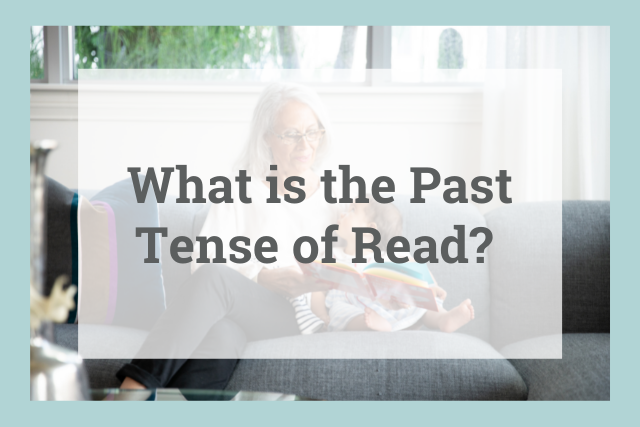
First Question: Do you like to read?
Second Question: What’s the best book you’ve ever read?
Third Question: Notice anything about the last words in the first and second questions?
Most likely you noticed they are spelled the same and both relate to the same activity: reading. They are, however, pronounced differently. The read at the end of the first question rhymes with seed, while the read in the second question rhymes with bed.
So how do you know which pronunciation to use? Read (like seed) more to find out!
What Does "Read" Mean?
Read most often takes the form of a verb and, like many words in the English language, has several related but distinct definitions.
The most used definitions for the verb “to read” are:
- To look at, interpret, and comprehend the meaning of written material
- To verbalize written material, usually to another person who is listening
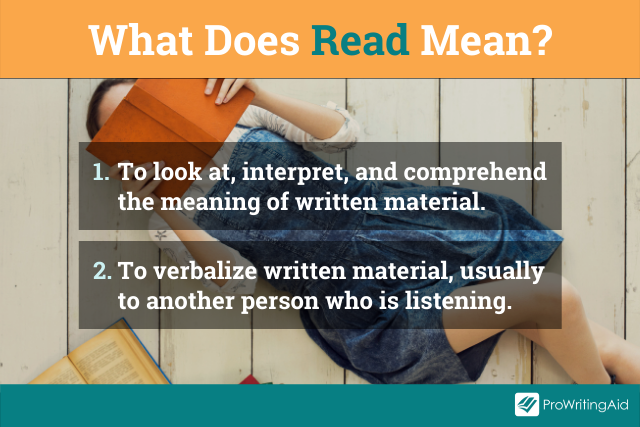
What Is the Past Tense of "Read"?
For most regular verbs, if you want to write in the past tense, you just add -ed (e.g. played, jumped, shouted). Unfortunately, the irregular verb read doesn’t work like that. There’s no such word as readed.
Instead, there are a few different ways to write read in the past tense, depending on who was doing the reading and when it happened.
When it comes to pronunciation, there are two general rules you can follow for "read" in the past tense:
- Any form with the ing ending has the long e sound (like "weeding").
- Any form that includes has/have/had before read (without the ing) has the short e sound (like "red").
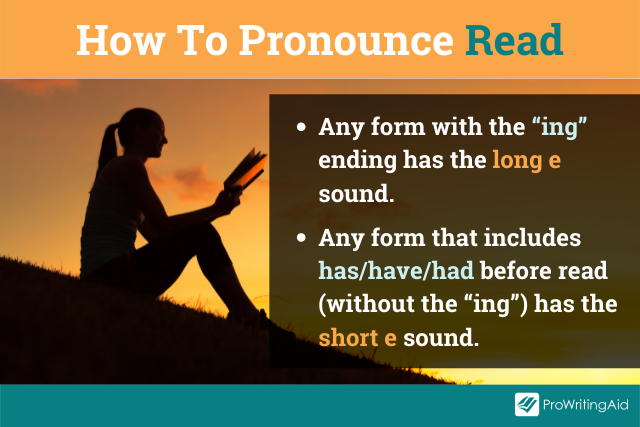
How Do I Conjugate the Verb "To Read"?
If you’re studying English grammar, you might have heard of verb conjugation before. This sounds complicated, but all it means is changing a verb to make it make sense in your sentence.
There are several different ways you can talk about the past in English, and each of them has its own rules. We’ll break them down and give you examples so you can get it right every time.
What Is the Simple Past Form of "To Read"?
We use the simple past tense to describe an action that was completed before now.
- I read the instructions before I built the wardrobe.
Pronunciation: "Read" sounds like "red".
What Is the Past Perfect Form of "To Read"?
Now we get a bit more specific. If you had finished reading something before a specific point in the past, use "had read".
- I had read Moby Dick three times by the time I was ten years old.
Pronunciation: "Read" sounds like "red"—and remember to include "had" before "read".
What Is the Past Continuous Form of “To Read”?
If someone began reading in the past, and was still reading when another event occurred, use "was reading," like this:
- He was reading when the telephone rang.
- They were reading when the alarm sounded.
Pronunciation: "Reading" rhymes with "weeding".
What Is the Past Perfect Continuous Form of "To Read"?
If you want to describe a continuing action that occurred before a particular time in the past, use "had been reading".
- She had been reading romance novels for years before she decided to write a novel herself.
- I had been reading about space travel, so I decided to become an astronaut.
As you can see from these examples, we use "had been reading" to describe actions that have taken place continuously over a longer period of time (e.g. for years) that directly relate to the moment you want to reference (e.g. she decided to write a novel herself).
Pronunciation: "Reading" rhymes with "weeding".
What Is the Past Participle of "Read"?
Time for a bonus round! The past participle is not actually a tense. Instead, it is the form of a verb that we use to make the past perfect tense.
That’s a lot of grammar jargon. All you really need to know is that the past participle of "to read" is "read" (rhymes with "red").
While this is spelled the same as the simple past version, it is used differently.
Simple Past:
- I read the book yesterday.
- I read the reviews before I made my decision.
- I read to her to help her fall asleep.
Past Participle:
- My students had read the book, but I don't think they understood it.
- I had read about it in a book, but seeing the sunrise over Mount Fuji in person was so much better.
- The book had been read by millions of people before the movie came out.
Does "Reading" Ever Rhyme with "Bedding"?
The only instance I know of where "reading" rhymes with "bedding" is when it’s referring to a city in the state of Pennsylvania, the town near London, or the (no longer in existence) Reading Co., which was a railroad in Southeast Philadelphia, PA. If you’ve ever played the board game Monopoly (the American version) you may have heard of the Reading Railroad.
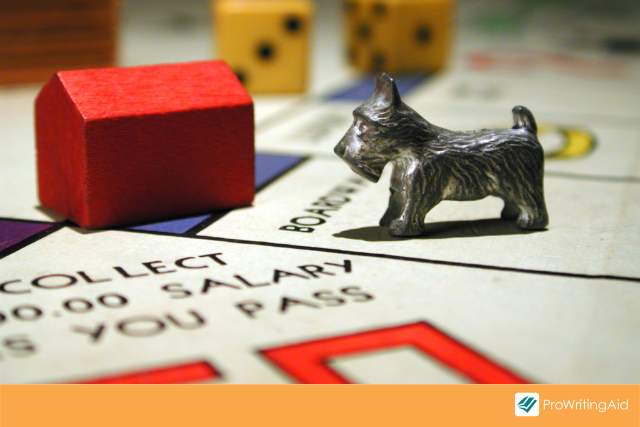
If you know other examples of "reading" rhyming with "bedding" let me know!
What Are Some Homophones for "Read"?
Now that you know the past tense of read, let’s check your spelling.
Homophones are words that sound the same but have different meanings, spellings, or origins.
For example, the past tense of "to read", which is read, shares the same sound as red—but not the same meaning.
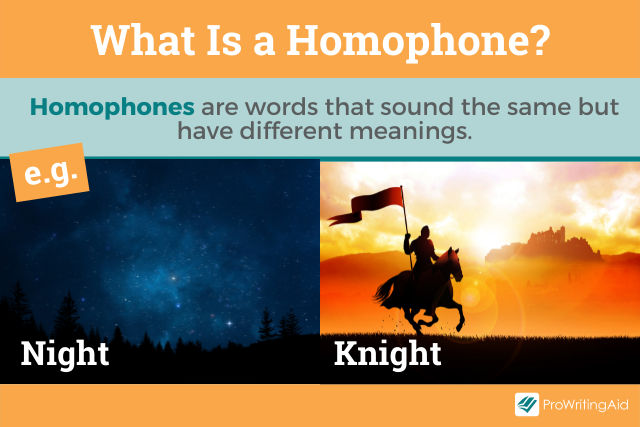
The present tense to read (rhymes with deed) sounds like reed, but as with the past tense of read and the word red, that similar sound is all the words have in common.
- Red is an adjective that identifies color. It’s the color of blood, marinara sauce, and the most popular roses and sports cars. Red is not an action. It’s not a verb. Read (past tense) is a verb. It means that in the past, you (or another subject) looked at, interpreted, and comprehended some written text.
- Reed is not a verb either. In its noun form, a reed is a long, grassy plant that grows in a marsh or a thin blade of cane or metal that is used to play certain instruments.
As an adjective, reed describes instruments that require reeds (the noun) to make sound: a clarinet is a reed instrument.
ProWritingAid’s Homonym Report can help you recognize any possible homophone errors in your work. Be sure to try it out!
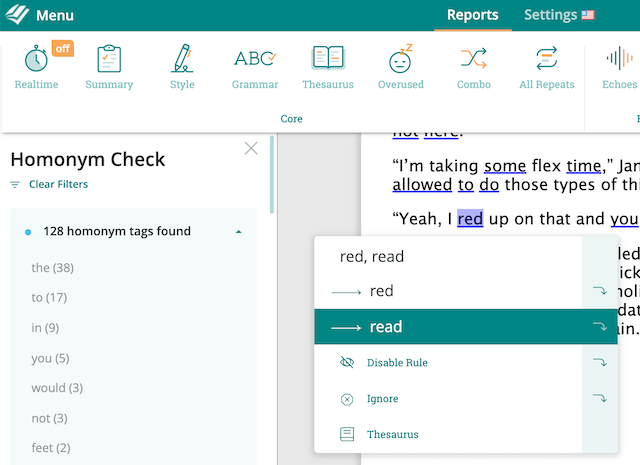
What Does It Mean to "Read Up On" Something?
There are lots of phrases in English that contain the word "read" (in both the past and present tense). Many of these phrases are idioms, which means that the meaning of the phrase differs from the meaning of its individual words. For example, to call off an event means to cancel that event even though neither "call" nor "off" means "to cancel".
Most of the phrases below can be presented in either the past (where read rhymes with red) or present (where read rhymes with reed) tense.
Read over: to read through something quickly; get an overview.
Read off: to read out loud from a list.
Read back: to read, out loud, information someone has just dictated or given.
Read up on: to learn about something by reading about it.
Read one’s mind: to know what someone is thinking.
Do you read me?: the speaker is saying, “Do you understand me?”. This one can only be used in the present tense.
Read between the lines: to recognize the real meaning behind the surface or apparent meaning.
Read like a book: to understand someone completely—their emotions or intentions.
Read my lips: the speaker is saying “Pay attention!” or “Listen closely!”. This one can only be used in the present tense.
Read one’s rights: law enforcement must recite the perpetrator’s legal rights upon arrest.
Read the room: to assess/analyze the mood of people in a particular setting and act appropriately in response.
Read the fine print: to make certain you are aware of and understand the specific rules/regulations.
Read 'em and weep: to show results that make you the victor! This idiom is often used in card games. This one can only be used in the present tense.
Read the riot act: to scold harshly.
It reads well: this means a work is written well and pleasing to read. (Past tense: It read well, rhyming with "red".)
Read music: to understand the symbols used in written musical scores.
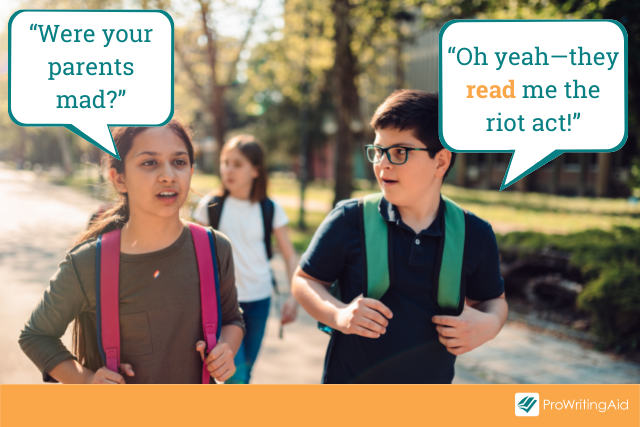
For even more read idioms, check out TheFreeDictionary.
How Does "Read" Function as a Noun?
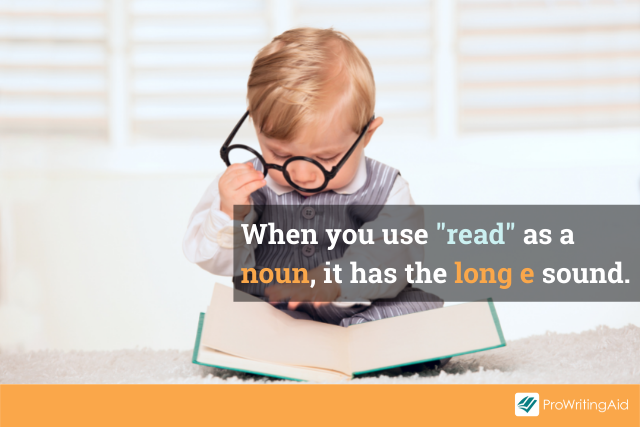
Because the English language loves to keep its readers, writers, speakers, and learners on their toes, read has another function as a noun.
If you give something a read, that means you’ve read through it.
If you enjoy a book or article, you might say, "that was a great read!"
If you have a read on something, that means you understand how it works.
When used as a noun, read has the long e sound and is preceded by an article (usually "a").
Quiz: How Do You Pronounce "Read"?
Which "read" is it? Long e or short e? Test yourself. Pay attention to the tense!
I cannot read very fast.
She read that entire book yesterday!
You will need to read those instructions carefully.
I would have read it, but I was so tired I fell asleep.
Keep reading! You’ll love the ending.
Please don’t disturb me while I’m reading.
I was reading that last night.
I read it, but I didn’t enjoy it.
He reads aloud to the children every night.
He read aloud to the children every night when they were small.
You can find the answer if you read carefully.
If you had read more carefully, you would have found the answer.
At school, teachers help students learn to read.
They have not read the newspaper yet.
The teacher read to the class.
I read books.
Answers: 1. Long 2. Short 3. Long 4. Short 5. Long 6. Long 7. Long 8. Short 9. Long 10. Short 11. Long 12. Short 13. Long 14. Short 15. Short 16. It depends!
In 16., we need more information to determine the correct answer to this "trick" question. If the speaker is making a present-tense statement, then it’s the long e. If they are answering a question about what they did last week (or some other time in the past), then it’s the short e.
FREE quiz PDF download: Which "read" is it?
Example of past tense:
"What did you do while you were sitting on the beach?"
"I read books."
(short e, rhymes with "red")
Example of present tense:
"What do you do for a hobby?"
"I read books."
(long e, rhymes with "weed")
Read: A Review
Now you’ve read through this post you should have a solid read on when to pronounce read with the long e or short e sound.
If you need a review, read through it again and let the sounds sink in.
Before you go, I’d love to recommend a book I just read (short e). I’m a fan of thoughtful suspense (and rich psychological thrillers) and The Searcher by Tana French was a great read (long e)—I hope you enjoy it!
